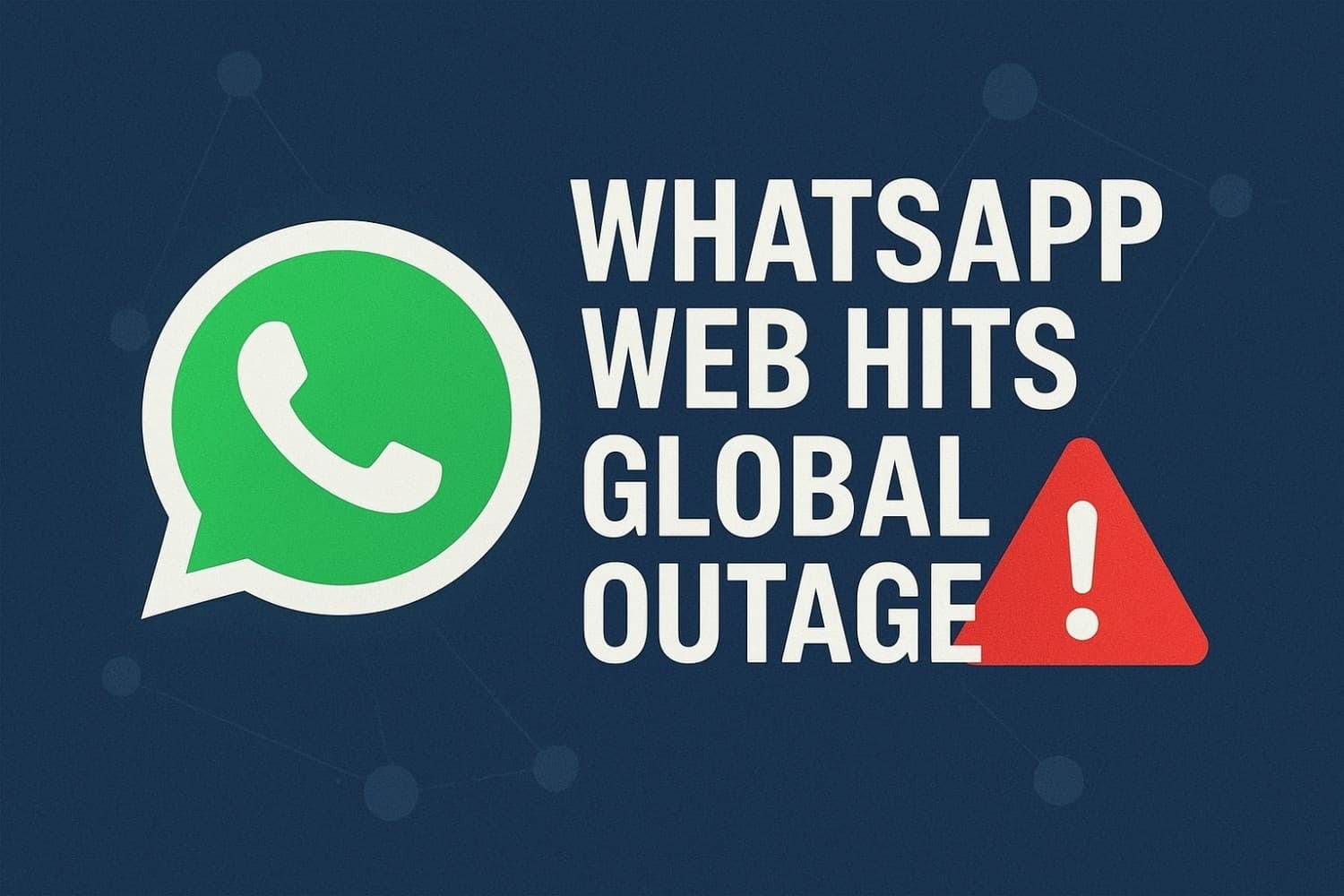On November 4 2025, users around the world began reporting that WhatsApp Web — the browser-linked version of the platform — was failing to load chats, connect to the service, or synchronise properly. The parent company Meta Platforms has yet to issue a detailed explanation, but the disruption is significant given WhatsApp’s large global user base. For many relying on the Web version for business or remote work, the issue is already causing ripple effects.
Background / Context
WhatsApp has long offered a Web or desktop companion to its mobile app, allowing users to mirror chats in a browser by linking to their smartphone. As of recent times, the service has been widely adopted for both personal and professional communication, especially within remote-working and hybrid contexts. Outage-tracking services have flagged previous disruptions for WhatsApp and its sibling platforms (such as Instagram and Facebook), underscoring how dependent many users have become on its uptime.
Key Developments / Details
Reports indicate that the outage began mid-to-late afternoon (IST) on November 4, with users in India, the UK, the US, Brazil, Mexico and other countries experiencing issues.
According to one tracker, around 81% of reported issues were tied to the Web/desktop interface, with smaller shares attributing the problem to message delivery failure or server connection errors.
In India, the number of complaints spiked around 3:48 PM IST, when more than 100 outage reports were logged within minutes.
Many Web users reported chat windows freezing, being unable to generate a new session QR code, or getting stuck on “Connecting…” while their mobile app continued to show activity.
Meta has not yet publicly provided a root-cause or expected timeline for full recovery.
Technical Explanation
In simple terms, the Web version of WhatsApp relies on a connection between your phone and the web client (browser or desktop app). When WhatsApp Web fails, it’s often because:
The device-to-cloud link is disrupted (e.g., the phone cannot talk to WhatsApp servers or the browser can’t talk to the phone).
A server component (or load-balancer) responsible for Web sessions may fail or get overloaded, causing connection requests to time out.
Browser caching or session-token issues may prevent proper handshake.
In this incident, with ~80% of reports coming from Web clients, the analogy would be: the phone (mobile app) is still tuned in to the radio station, but the speaker (browser) lost its antenna and can’t play the sound. The backend may still be working, but the front-line Web channel is impaired.
Implications
For everyday users, this means chats might be inaccessible on PCs or browsers — forcing a switch to the mobile app, which may be less convenient for extended use.
For professionals and small businesses that use WhatsApp Web for customer service, sales, or remote coordination, disruption to the browser interface can hamper workflows.
The outage also raises questions about the resilience of major messaging services, especially when large enterprises or teams depend on them for critical communications.
From a trust and brand perspective, frequent or prolonged outages can erode confidence in the service as a reliable platform.
Challenges / Limitations
Because Meta hasn’t issued a detailed explanation, speculation remains around the cause — whether a human error, infrastructure fault, or overload.
Users on mobile may or may not be affected equally; many reports suggest the mobile app is less impacted in this event.
Temporary fixes (clearing cache, switching browsers, reconnecting QR-link) may help some users, but won’t resolve an underlying server-side fault.
Future Outlook
Meta may perform a detailed post-mortem and publish its findings on the outage — which could lead to changes in Web-client infrastructure, redundancy improvements or alert systems.
Organisations relying heavily on WhatsApp Web might evaluate second-channel communication platforms or plan contingency options for future outages.
The incident may spark discussions on how dependent modern workflows have become on “free” messaging services and the need for enterprise-grade SLAs in such tools.
If the outage recurs, it may prompt Meta to offer more transparency or compensation in enterprise tiers — or accelerate shifts toward alternate messaging solutions.
Conclusion / Summary
Today’s global outage of WhatsApp Web serves as a stark reminder that even the most ubiquitous services are vulnerable to disruption. While most personal users may simply switch to mobile, for many professionals the downtime underscores how essential web-based messaging has become. Moving forward, the key takeaway is: even trusted platforms need backup plans — so when your browser chat freezes, you’re not left silent.
